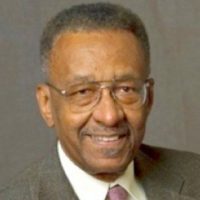
Many public primary and secondary schools are dangerous places. The Justice Department’s Bureau of Justice Statistics and the Department of Education’s National Center for Education Statistics show that in 2012, there were about 749,200 violent assaults on students. In the 2011-12 academic year, there were a record 209,800 primary- and secondary-school teachers who reported being physically attacked by a student. Nationally, an average of 1,175 teachers and staff were physically attacked, including being knocked out, each day of that school year. In Baltimore, each school day in 2010, an average of four teachers and staff were assaulted. Each year, roughly 10 percent of primary- and secondary-school teachers are threatened with bodily harm.
Many public schools not only are dangerous but produce poor educational results. According to the National Assessment of Educational Progress for 2013, sometimes called the Nation’s Report Card, only 33 percent of white 12th-graders tested proficient in math, and 47 percent tested proficient in reading. For black 12th-graders, it was a true tragedy, with only 7 percent testing proficient in math and 16 percent in reading. These grossly disappointing educational results exist despite massive increases in public education spending.
Many parents want a better education and safer schools for their children. The best way to deliver on that desire is to offer parents alternatives to poorly performing and unsafe public schools. Expansion of charter schools is one way to provide choice. The problem is that charter school waiting lists number in the tens of thousands. Another way is giving educational vouchers or tuition tax credits for better-performing and safer schools. But the education establishment fights tooth and nail against any form of school choice.
Another viable alternative increasingly chosen is home schooling. In 1970, there were only 10,000 home-schooled children. In 2012, according to recently released data from the National Center for Education Statistics, there were about 1.77 million children who were being home-schooled. Parents give a number of reasons for home schooling. Many want a safer environment for their children — away from violence, alcohol and other drugs, psychological abuse, and improper and unhealthy sexual indoctrination found in public schools. Some want to teach and impart a particular set of values and beliefs to their children.
In terms of academic achievement, home-schoolers beat out their public school counterparts. In reading, language, math, science and social studies, the average home-schooler scores somewhere near the 80th percentile. The average public school student taking these standardized tests scores at the 50th percentile in each subject area. Home-schoolers also tend to score higher than their public school counterparts on college admittance tests, such as the ACT and SAT.
Home schooling is not without its critics. Some of it is ludicrous, as shown in an excellent article in City Journal titled “Homeschooling in the City,” by Matthew Hennessey. Stanford University political scientist Rob Reich has called for tighter regulation of home schooling to ensure that “children are exposed to and engaged with ideas, values, and beliefs that are different from those of the parents.” My question to Reich is: Whose ideas and values should children be exposed to? Georgetown University law professor Robin L. West worries that home-schooled children grow up to become right-wing political “soldiers” eager to “undermine, limit, or destroy state functions.” West would like to see home schooling more highly regulated and home-schoolers subjected to mandatory testing and periodic home visits in order “to give the state a window into the quality of home life, and a way to monitor signs of abuse.”
Home-schoolers have a defense against this sort of meddling. The Home School Legal Defense Association is a nonprofit organization established to defend and advance the constitutional right of parents to direct the education of their children. The National Home Education Research Institute provides educational resources and research for home-schooling parents. Its founder, Dr. Brian D. Ray, recently published “African American Homeschool Parents’ Motivations for Homeschooling and Their Black Children’s Academic Achievement.” His findings are proof that home schooling is effective for not only white youngsters but black youngsters, as well.
Walter E. Williams is a professor of economics at George Mason University. To find out more about Walter E. Williams and read features by other Creators Syndicate writers and cartoonists, visit the Creators Syndicate Web page at www.creators.com.
COPYRIGHT 2015 CREATORS.COM




